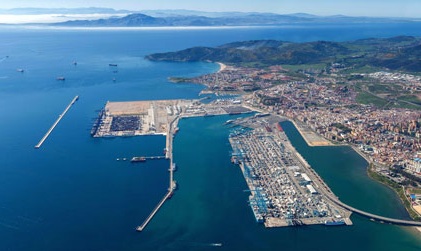The port of Algeciras (Cádiz), in southern Spain, is considered the most efficient in Europe and the Mediterranean according to the Container Port Performance Index (CPPI) ranking. This port, a maritime connection point between Europe and Africa, is the only non-Asian port in the World Bank's Top 10, led by the Japanese port of Yokohama followed by the King Abdullah port (Saudi Arabia) and Qingado (China).
The port of Algeciras is a key piece of the Spanish and European logistics strategy because it is the southern gateway to Europe for commercial traffic from Africa and America.
Likewise, it acts as a connection platform for the maritime lines that link Europe, Africa, America and Asia and connects directly with 200 ports and 75 countries.
The challenge for this Andalusian port is to consolidate itself as an intercontinental logistics platform and lead the transit of containers and petroleum products in the Strait of Gibraltar.
In addition to being the largest port in Spain, it is the third largest in the Mediterranean and the ninth in the world. Its hectic daily activity is due to its geostrategic location and its status as the epicenter of the commercialization of tobacco, fishing, agriculture and oil.
This Andalusian port is managed by the Algeciras Bay Port Authority (APBA), a public body dependent on the Ministry of Transport, Mobility and Urban Agenda and has its own legal personality and assets.
Since the beginning of the pandemic, the Port of Algeciras developed an online portal to facilitate teleworking for its staff, a functional tool that continues to be active in adapting to new work formats on a global scale. This port entity is the main engine of employment, wealth and development in a geographical area in which some 300,000 people live.





